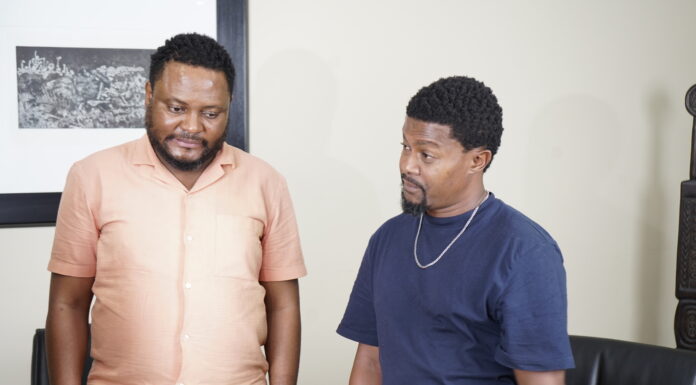Following years of alleged exploitation by production houses and casting agencies, background actors have finally snapped, demanding a minimum wage of R500 a day.
Provided that their wage demand does not fall on deaf ears, this means if they work for 20 days in a month, they will be paid R10, 000 a month. This or R15, 000 should they work for 30 days in a month.
Paid R3k to R5k per month
Currently, background actors are paid between R150 and R300 a day. This means some background workers are paid a slave wage of R3, 000 for working for 20 days. It is far below the minimum wage, which is just under R5, 000.
On September 3, more than 300 furious extras united and fired off a blistering letter to casting agencies and production houses. They demanded the minimum of R500 per day or they will boycott the set.
“Starting from the 25th of September, no background actor/actress shall attend any brief paying less than R500. All backgrounds must be given contracts to sign before working.
“To the agencies, if you dare advertise a brief for less than R500, we will be energetic enough to expose your name, picture, and production on social media. Uzotrenda (You will trend). No more using our wardrobe for background shoots. We are not donkeys. We require same-day payment.”
Threats to expose shenanigans
The extras are also threatening to blow the lid on “shenanigans and dirty secrets” in the industry. These include allegations of agencies demanding sexual favours and exploiting actors with booze.
“To background actors, if you are seen attending any brief paying less than R500, you will be dealt with harshly. That’s a promise. All agencies proposing love affairs with background actors or those who sleep, with them will be exposed. Agencies that exploit us for alcohol purposes will also be exposed.”
Deputy chairperson and background actress Zoe Zungu said: “I’ve been a background actress since 2011. And I’ve always earned between R150 and R300 per day. Usually paid only after a few months, not the same day. We work 10 to 12 hours a day with no compensation for overtime. In many cases, working conditions are not even good.
“We are tired, we want change, and we want to be paid at least R500 per day. Otherwise, we will escalate this to the relevant bodies. These include the Minister of Sport, Arts and Culture, Gayton McKenzie, and the Department of Labour. We need laws to regulate our industry.”
Agencies blame production houses
Agencies, however, pushed back. Thabo Ndimande from Let’s Talk Management said: “They must forget it. They must just go to school and study before making demands. We don’t decide on the fee, production houses do. We still need to take our percentage. And we also don’t approach production houses for jobs; it’s the other way around.
“If they don’t want to work, we will simply take people who are willing. We can hire and fire them anytime, it’s that easy, and there’s nothing they can do. In fact, some agencies are not even registered, but they’re working perfectly fine. If they threaten to come to our sets, we will simply call the police on them.”
But Sebenzile Mngomezulu from Khazimula Casting Agency admitted that productions hold the purse strings.
“I’m willing to pay more, but the issue lies with the production houses. Unfortunately, they decide what fee we must pay background actors. From that fee, I still have to deduct my commission of about R50–R100, which reduces the amount even further. In addition, production houses don’t pay us on time. This creates tension between us and background actors. I believe the fight is for a good cause, but it is misdirected,” she said.
Channels mum on issue
This isn’t the first time the industry has been rocked by payment scandals. Just last year, Bakwena Productions left background actors and crew unpaid after a major shoot.
Channels including Netflix, M-Net, and the SABC were contacted for comment but did not respond.
Matthew Parks from COSATU said they support these progressive demands. “They are fair and respond decisively to long-standing grievances by actors about real exploitation and abuse that the industry has shamefully ignored.
“Actors have been forced by poverty to work until they die, as they don’t have medical insurance, actors have died or been disabled on set with no compensation relief. Those who’ve raised their voices have been blocklisted by industry.”
He said they are currently in talks with Nedlac to assist background actors. “This is going to change as Cosatu has secured an agreement at Nedlac with the Department of Employment and Labour to now recognise them as workers and thus be afforded legal protection.
“We will and are working closely with SA Guild of Actors in this campaign. This is important not just for actors but for all atypical workers.
“We’ve secured agreement at Nedlac with the government to amend the labour laws to recognise them as workers and their rights to unionise and collective bargaining as well as all the rights of workers including unemployment and compensation insurance,” said Parks.
He said that they expect casting agents to resist these upcoming changes.




